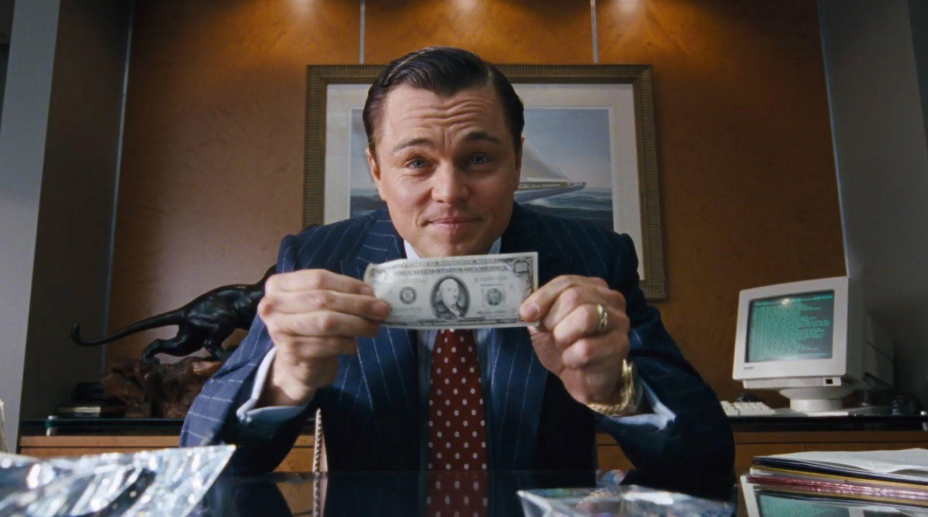Image courtesy of Paramount Pictures
When ambition turns into obsession, when the pursuit of more overrides balance and conscience, it transforms into greed. Few filmmakers have captured this dangerous shift without sullying its subtlety as vividly as Martin Scorsese.
Across the three towering films of Goodfellas (1990), Casino (1995), and The Wolf of Wall Street (2013), Scorsese paints an unflinching portrait of the many faces of greed. Critics and cinephiles often group these movies under the banner of his “Greed Trilogy.”
While never officially declared by Scorsese himself, the label fits. Each story showcases how ambition, when unchecked, becomes destructive; not just for the individual at the center, but for everyone orbiting their downfall.
What makes these films timeless is how they reflect our reality. They remind us that the line between honest success and ruinous excess is razor-thin.
In business, finance, and even entertainment, the same principles apply. And in an age when industries are evolving, with casinos and online gaming among them, the lessons from Scorsese’s trilogy resonate louder than ever.
Image courtesy of Warner Bros. Pictures.
Goodfellas (1990)—The Seduction of Power
Goodfellas is often seen as Scorsese’s mob masterpiece, and for good reason. It follows the rise and fall of Henry Hill, whose boyhood dream of joining the mafia turns into a nightmare of betrayal and paranoia.
At its heart, Goodfellas is about seduction: the seduction of fast money, shiny cars, and a sense of belonging to a world that seemed untouchable.
The brilliance of the film lies in how effortlessly Scorsese pulls the viewer into Henry’s perspective. Through kinetic editing, freeze frames, and an irresistible soundtrack, the audience experiences the thrill of mob life alongside him.
For a while, it feels almost enviable. But that’s the trap: the very point Scorsese wants to make. Greed rarely announces itself as greed; it often looks like opportunity, loyalty, and success.
Goodfellas is less a story about crime families and more a universal cautionary tale: when desire for more outweighs restraint, the cost is inevitable collapse.
Image courtesy of Universal Pictures
Casino (1995)—Empire of Illusion
While Goodfellas often dominates the conversation, Casino deserves equal, if not greater, praise. This 1995 film is one of Scorsese’s most ambitious works, though it’s not as frequently cited in mainstream conversations.
Set in Las Vegas, the film follows Sam “Ace” Rothstein, a meticulous casino manager whose empire is both dazzling and fragile.
The neon lights, the glamorous guests, and the steady hum of slot machines create an illusion of control. However, beneath that surface, greed consumes not only the business but also the relationships holding it together.
What sets Casino apart is its commentary on systems themselves. It’s not just mobsters pulling strings; it’s the underground machinery of Vegas itself. If Goodfellas is about personal seduction, Casino is about institutional decay.
For those willing to look past its overshadowed reputation, Casino emerges as one of Scorsese’s sharpest warnings: no system, however dazzling, can survive without responsibility. Greed unchecked will always corrode the foundation.
Image courtesy of Paramount Pictures
The Wolf of Wall Street (2013)—Greed Without Borders
If Goodfellas and Casino are mafia stories, The Wolf of Wall Street makes it clear that greed isn’t confined to the criminal underworld.
Released in 2013, the film chronicles the rise of Jordan Belfort, a stockbroker who built his empire on fraud, excess, and unrelenting ambition. His story isn’t about mobsters with guns; it’s about Wall Street executives with pens and loopholes, yet the result is the same: corruption and collapse.
What makes this film so striking is its tone. Unlike the brooding paranoia of Goodfellas or the glittering grandeur of Casino, The Wolf of Wall Street is outrageous, chaotic, and gleefully excessive. It’s a three-hour roller coaster of drugs, yachts, and moral bankruptcy, all fueled by the same human flaw: the inability to say “enough.”
Perhaps the scariest part is how easy it is to take all that occurred in the film at face value, masking itself as a story of redemption. At no point is there even a breadcrumb that the movie throws for you to feel remorse.
The responsibility lies only on those who choose to see the crimes swept away by the lavish and opulent scenery of ill-gotten and ill-conceived toys you secretly wish you could play with.
Its cultural weight is undeniable. The film has become a staple on streaming platforms because its message remains painfully relevant.
It’s not a relic of the 1990s mob era but a mirror of today’s financial systems, where unchecked ambition can spiral out of control in boardrooms just as easily as back alleys.
Scorsese’s third act in the trilogy reminds us that greed is not a niche problem. It’s universal, and it can seduce anyone chasing more.
The Line Between Wealth and Ruin
Across all three films, Scorsese crafts a clear arc: ambition, left unchecked, evolves into greed, and greed inevitably leads to ruin.
Goodfellas shows us the allure of power. Casino shows us the illusion of control. The Wolf of Wall Street shows us the global scale of excess. Together, they form a cautionary saga that spans decades and industries.
What unites these stories is the thinness of the line between honest success and destructive greed. That line is easy to cross because the pursuit of “just a little more” often feels justified.
Henry Hill didn’t start with murder in mind; Jordan Belfort didn’t plan on becoming the face of corruption. But one compromise leads to another, and before long, ambition has soured into obsession.
These films remind us that wealth itself is not the villain. It’s not even the absence of restraint. It is a systemic cancer that we need to cut out and heal from scratch.
Ambition needs structure, ethics, and awareness to avoid self-destruction. That’s a lesson not only for gangsters and brokers but also for industries today that sit at the crossroads of profit and responsibility.
The World Goes On, and We Must Be Better
The world has changed. After countless stories of greed’s destruction, people are more aware of the stakes than ever. Audiences have watched Scorsese’s cautionary tales unfold, and industries today can’t afford to ignore the message.
That’s why platforms like GameZone embrace responsibility as part of their DNA.
Surrendering itself to the checks and balances of multiple financial authorities worldwide, the fun and excitement in online gaming must continue to play by the rules, no questions asked.
Features like deposit limits, time reminders, and self-exclusion measures ensure that entertainment stays entertainment.
The takeaway is simple: in today’s era, keeping the business clean isn’t just an ethical choice but essential for trust and longevity. Unlike the doomed empires of Scorsese’s Greed Trilogy, GameZone thrives by putting responsibility first.
In today’s world, industries like online gaming stand at this crossroads. Scorsese’s cautionary tales echo in their relevance, reminding us why balance matters.
In the end, it isn’t about rejecting ambition. It’s about shaping it responsibly, so the pursuit of more leads not to ruin but to sustainable, meaningful success.



